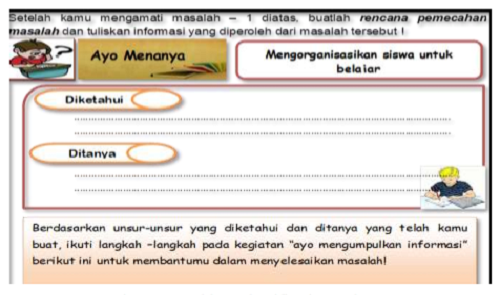
Development of Problem Based Learning Devices in Two Variable Linear Equation System Materials
Abstract
Keywords
Full Text:
PDFReferences
Ahmad, M., & Asmaidah, S. (2017). Pengembangan Perangkat Pembelajaran Matematika Realistik untuk Membelajarakan Kemampuan Pemecahan Masalah Matematika Siswa SMP. Jurnal Mosharafa, 6(3), 373-384.
Anik, G. (2017). Integrasi Nilai-Nilai Karakter Bangsa Pada Kegiatan Pembelajaran. Cakrawala pendidikan Edisi Khusus dies Natalis ketiga UNY th. XXIX.
Arends, I. Richard. (2008). Learning to Teach. Yogyakarta: Pustaka Pelajar.
Atika, N., Roza, Y., & Murni, A. (2020). Development of Learning Tools by Application of Problem Based Learning Models to Improve Mathematical Communication Capabilities of Sequence and Series Materials. Journal of Educational Sciences. 4(1), 62-72.
Devi, P. K., Sofiraeini, R., & Khairuddin. (2009). Pengembangan Prangkat Pembelajaran untuk guru SMP. Bandung: P4TK IPA.
Fitria, R., Hutapea, N. M., & Zulkarnain. (2020). Development of Mathematics Learning Devices by Applying Problem Based Learning to Increase Students Mathematical Solving Skills of Class VII Junior High School. Journal of Educational Sciences, 4(2), 368-379.
Yustianingsih, R., Syarifuddin, H., & Yerizon. (2017). Pengembangan Perangkat Pembelajaran Matematika Berbasis Problem Based Learning Untuk Meningkatkan Kemampuan Pemecahan Masalah Peserta Didik Kelas VIII. Jurnal JNPM (Jurnal Nasional Pendidikan Matematika), 1(2), 258-274.
Kemendikbud. (2014). Peraturan Menteri Pendidikan dan Kebudayaan Nomor 58 Tahun 2014 tentang Kerangka Dasar dan Struktur Kurikulum Sekolah Menengah Pertama/Madrasah Tsanawiyah. Jakarta: Kemendikbud.
Kunandar. (2011). Langkah Mudah Penelitian Tindakan Kelas Sebagai Pengembangan Profesi Guru. Jakarta: Rajawali Press.
Roliza, E. Ramadhona, R., & Rosmery, L. (2018). Praktikalitas Lembar Kerja Siswa pada pembelajaran Matematika Materi Statistika. Jurnal Gantang, 3 (1), 41– 46.
Sa’dun, A. (2013). Instrumen Perangkat Pembelajaran. Bandung: Rosdakarya.
Sani, R.A. (2013). Teori-Teori Belajar & Pembelajaran. Jakarta: Erlangga.
Sohimin, A. (2014). Model Pembelajaran Inovatif dalam Kurikulum 2013. Yogyakarta: Ar-Ruzz Media.
Sudijono, A. (2011). Pengantar Statistik Pendidikan. Jakarta: Rajawali Press.
Sugiyono. (2008). Metode Penelitian Kuantitatif, Kualitatif, dan R&D. Bandung: Alfabeta.
Oktaviani, R. T., & Retnawati, H. (2017). Pengembangan Perangkat Pembelajaran Berbasis Pendekatan Open-Ended Berorientasi Pada Kemampuan Berpikir Kreatis. Jurnal Pendidikan Matematika, 6(8), 13– 26.
Wayan, N. I. G., & Ardana, I. M. (2014). Pengembangan Perangkat Pembelajaran Matematika dengan Pendekatan Scientific Berbasis Teknologi Informasi dan Komunikasi untuk Meningkatkan Kemampuan Pemecahan Masalah dan Penalaran Siswa. Jurnal Pendidikan dan Pembelajaran Matematika Indonesia, 3(1), 34-46.
Wena, M. (2009). Strategi Pembelajaran Inovatif Kontemporer; Suatu Tinjauan Konseptual Operasional. Jakarta: Bumi Aksara.
Zahira, H., Zulkarnain., Yuanita, P. (2020). Development of a Problem Based Learning Media to Build Mathematical Communication Capabilities Students of Class VIII Junior High School. Journal of Educational Sciences, 4(3), 487-500.
Matondang, Z. (2009). Validitas dan Reabilitas Suatu Instrumen Penelitian. Jurnal tabularasa PPS UNIMED, 6(1), 98-106.
DOI: http://dx.doi.org/10.31258/jes.5.2.p.325-340
Refbacks
- There are currently no refbacks.
Copyright (c) 2021 Farida Farida

This work is licensed under a Creative Commons Attribution 4.0 International License.
Publisher: FKIP Universitas Riau












